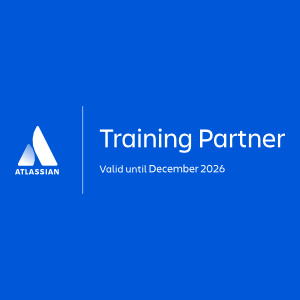Revolutionizing PayPal: The Largest Atlassian Cloud Migration in History
PayPal, a global leader in online payments, faced significant challenges with their existing infrastructure, which…

Plans in Jira Software, available with Premium and Enterprise Cloud Licenses as well as Data Center, empowers teams to stay aligned in a fast-paced world by maintaining a single source of truth.
Standard Delivery: 6 hours of instruction
GSA: $507.35 USD*

Plans in Jira Software was previously known as Advanced Roadmaps until November 30th, 2023. Plans in Jira Software is available for Premium and Enterprise Cloud Licenses and Data Center.
In an ever-changing environment, you and your team can maintain a single source of truth using Plans in Jira Software.
This course will give your team a broad overview of the features of Plans in Jira Software to create and manage reliable plans.
They’ll also learn how auto-scheduler can be used to build Plans, and then how to experiment with “what-if” scenarios — adjusting scope, resources, and time — to improve their long-term planning effectiveness.
Your team will gain confidence to forecast plans across multiple projects before committing them to your teams' Jira boards.
Have a group of 5 or more students? Cprime also provides specialist private training with exclusive discounts for tailored, high-impact learning.

1. Course Overview
Lab 1 – Log in (5 min)
2. Introduction to Planning / Getting Started with Plans
Lab 2 – Getting Started with Plans (20–30 min)
3. Creating and Navigating Plans
Lab 3 – Creating and Touring a Plan (25–30 min)
4. Working with Teams
Lab 4 – Working with Teams (15 min)
5. Using the Auto-Scheduler / Working with the Schedule
Lab 5 – Working with the Schedule (25–30 min)
6. Working with Dependencies
Lab 6 – Managing Dependencies (30–45 min)
7. Releases and Scenarios
Lab 7 – Releases and Scenarios (45–60 min)
8. Sharing and Exporting Plans / Customizing Views
This course is designed for anyone responsible for managing Jira Software projects. That includes
The course “Plans in Jira Software” from Atlassian University teaches you how to build, manage, and visualize long-term plans across multiple teams and projects. You'll learn how to use key features like the auto-scheduler, dependency management, and what-if scenario planning to improve forecasting and coordination. It’s ideal for project managers, team leads, and others needing visibility across workstreams.
| Delivery | Date | Price | Reserve your seat |
|---|---|---|---|
| There are currently no scheduled classes for this course. | |||